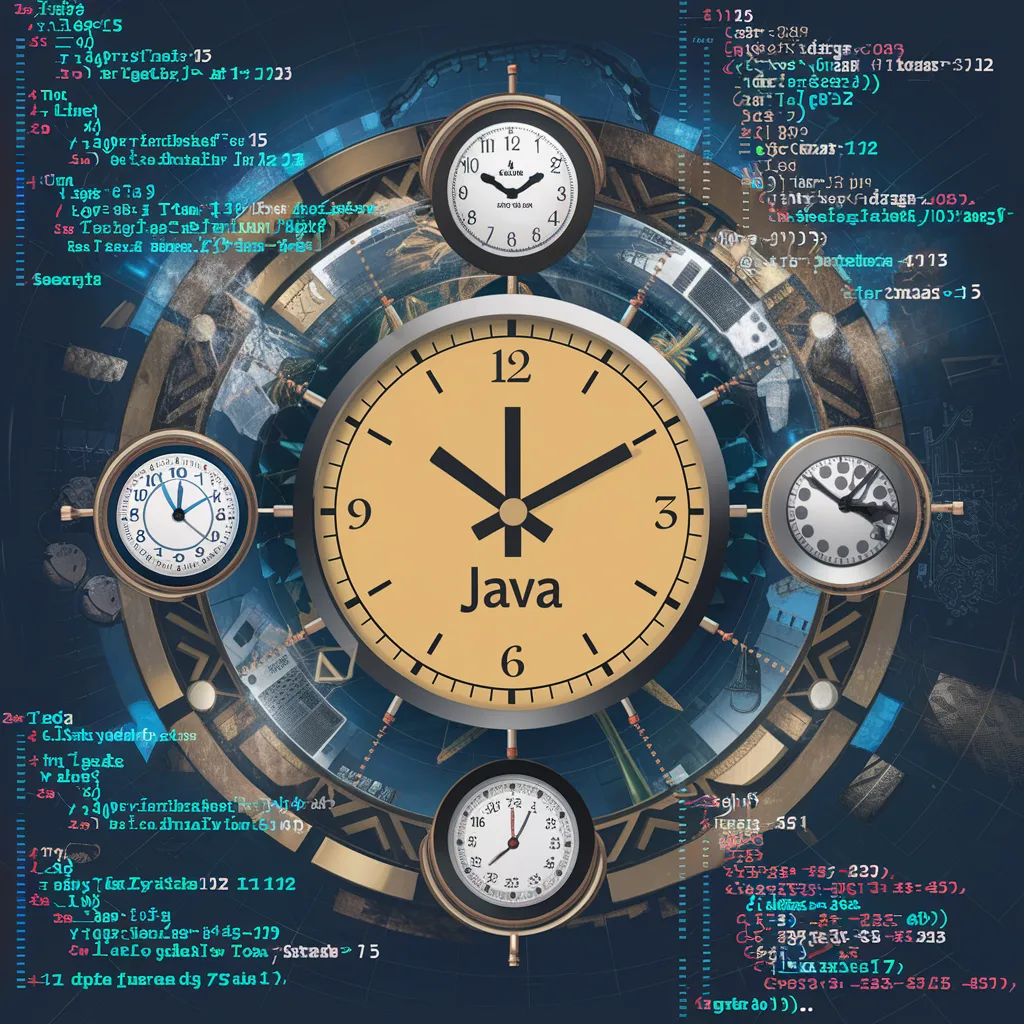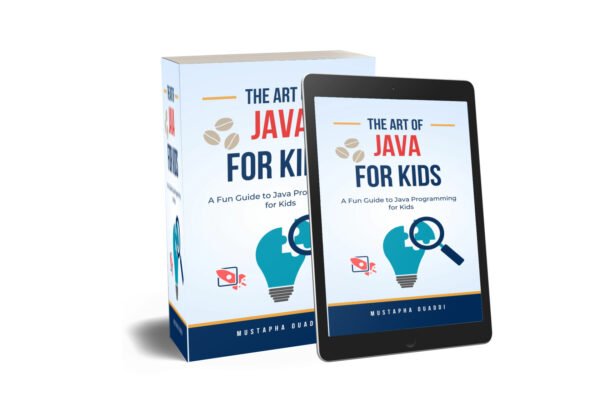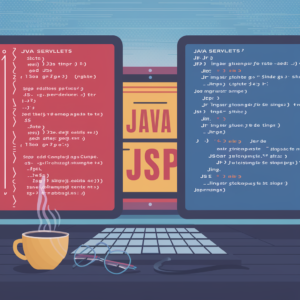Java For Kids
Starting with the basics of Java syntax and control flow, the ebook gradually progresses to more advanced topics such as object-oriented programming, file input/output, error handling, and more. Each chapter is carefully crafted to provide a solid understanding of Java concepts while keeping young readers engaged and motivated.
Java 8 introduced a new Date and Time API, which is a significant improvement over the old java.util.Date and java.util.Calendar classes. The new API, found in the java.time package, offers a more comprehensive and user-friendly approach to handling date and time, inspired by the popular Joda-Time library. This article will guide you through the key features of the Java 8 Date and Time API and provide examples of how to manage time effectively.
Key Components of the Java 8 Date and Time API
1. LocalDate
LocalDate represents a date without a time zone, such as 2024-06-01. It is useful for representing dates such as birthdays, anniversaries, or any other date that does not require a time component.
Example: Creating and Manipulating LocalDate
import java.time.LocalDate;
public class LocalDateExample {
public static void main(String[] args) {
LocalDate today = LocalDate.now();
System.out.println("Today's date: " + today);
LocalDate birthday = LocalDate.of(1990, 6, 15);
System.out.println("Birthday: " + birthday);
LocalDate nextWeek = today.plusWeeks(1);
System.out.println("Date next week: " + nextWeek);
LocalDate previousMonth = today.minusMonths(1);
System.out.println("Date last month: " + previousMonth);
}
}
2. LocalTime
LocalTime represents a time without a date, such as 14:30:00. It is useful for representing times such as opening hours, alarm times, or any other time that does not require a date component.
Example: Creating and Manipulating LocalTime
import java.time.LocalTime;
public class LocalTimeExample {
public static void main(String[] args) {
LocalTime now = LocalTime.now();
System.out.println("Current time: " + now);
LocalTime meetingTime = LocalTime.of(14, 30);
System.out.println("Meeting time: " + meetingTime);
LocalTime lunchTime = now.plusHours(1);
System.out.println("Lunch time in an hour: " + lunchTime);
LocalTime breakfastTime = now.minusHours(2);
System.out.println("Breakfast time two hours ago: " + breakfastTime);
}
}
3. LocalDateTime
LocalDateTime combines LocalDate and LocalTime to represent a date and time without a time zone, such as 2024-06-01T14:30:00.
Example: Creating and Manipulating LocalDateTime
import java.time.LocalDateTime;
public class LocalDateTimeExample {
public static void main(String[] args) {
LocalDateTime now = LocalDateTime.now();
System.out.println("Current date and time: " + now);
LocalDateTime meeting = LocalDateTime.of(2024, 6, 1, 14, 30);
System.out.println("Scheduled meeting: " + meeting);
LocalDateTime futureMeeting = meeting.plusDays(2).plusHours(3);
System.out.println("Future meeting: " + futureMeeting);
LocalDateTime pastEvent = now.minusWeeks(1);
System.out.println("Event one week ago: " + pastEvent);
}
}
4. ZonedDateTime
ZonedDateTime represents a date and time with a time zone, such as 2024-06-01T14:30:00+01:00[Europe/London]. It is useful for applications that require awareness of different time zones.
Example: Creating and Manipulating ZonedDateTime
import java.time.ZonedDateTime;
import java.time.ZoneId;
public class ZonedDateTimeExample {
public static void main(String[] args) {
ZonedDateTime now = ZonedDateTime.now();
System.out.println("Current date and time with time zone: " + now);
ZonedDateTime meeting = ZonedDateTime.of(2024, 6, 1, 14, 30, 0, 0, ZoneId.of("Europe/London"));
System.out.println("Scheduled meeting in London: " + meeting);
ZonedDateTime nyTime = now.withZoneSameInstant(ZoneId.of("America/New_York"));
System.out.println("Current time in New York: " + nyTime);
ZonedDateTime futureMeeting = meeting.plusDays(1).plusHours(2);
System.out.println("Future meeting in London: " + futureMeeting);
}
}
Parsing and Formatting Dates
Java 8 Date and Time API provides the DateTimeFormatter class for parsing and formatting dates.
Example: Parsing and Formatting Dates
import java.time.LocalDate;
import java.time.format.DateTimeFormatter;
public class DateTimeFormatterExample {
public static void main(String[] args) {
DateTimeFormatter formatter = DateTimeFormatter.ofPattern("dd-MM-yyyy");
String dateString = "01-06-2024";
LocalDate date = LocalDate.parse(dateString, formatter);
System.out.println("Parsed date: " + date);
String formattedDate = date.format(formatter);
System.out.println("Formatted date: " + formattedDate);
}
}
Conclusion
The Java 8 Date and Time API offers a powerful and flexible way to handle dates and times. By using classes like LocalDate, LocalTime, LocalDateTime, and ZonedDateTime, you can manage date and time effectively in your applications. The API also provides robust support for parsing and formatting dates, making it easier to work with date and time data in various formats. Embracing these new tools will enhance your ability to write clear, maintainable, and bug-free code.
#Java #Java8 #DateTimeAPI #LocalDate #LocalTime #LocalDateTime #ZonedDateTime #DateTimeFormatter #JavaProgramming #JavaDevelopment #JavaExamples #JavaTutorial #Coding #Programming #SoftwareDevelopment #TechBlog #DeveloperTips #CodeExamples






